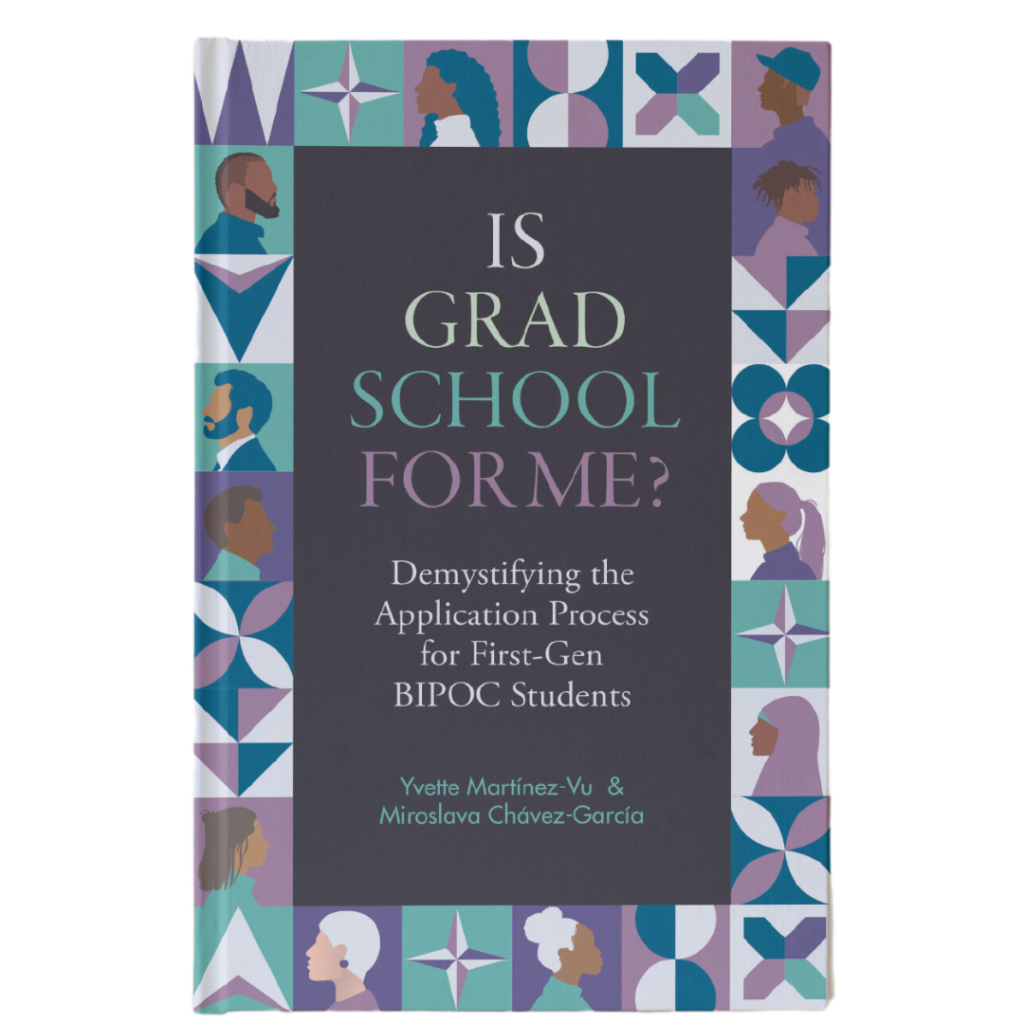
As experienced McNair program directors – Miroslava as the faculty director and Yvette as a former associate director – we understand the daunting task of unmasking the ‘hidden curriculum’ of successfully applying to graduate school. We aim to demystify the graduate school application process, particularly for first-generation black, indigenous, and other people of color (BIPOC, nontraditional, and low-income students who often lack access to essential resources.
Graduate school isn’t for everyone, as Yvette often reminds her clients. Our book, “Is Grad School for Me?” helps readers make informed decisions about their academic and professional futures. We address common myths, such as the necessity of a master’s degree before applying to a doctoral program, the significance of a competitive GPA or GRE score, and the financial feasibility of attending graduate school.
Contrary to popular belief, not all doctoral programs require a master’s degree. Many Ph.D. programs offer opportunities to earn a master’s degree along the way. Additionally, holistic application reviews and optional GRE scores empower applicants to strengthen other aspects of their applications, such as essays and recommendation letters.
Financing graduate education can be challenging, but scholarships, fellowships, and on-campus employment options exist to alleviate financial burdens. However, the lack of understanding of the ‘hidden curriculum’ presents a significant obstacle for many first-generation BIPOC, low-income, and nontraditional students. Our book addresses this challenge by defining graduate program options, debunking myths, and offering insights into admissions.
Representation is crucial, and we acknowledge the unique challenges faced by first-gen BIPOC students. They often lack familial and community support in navigating higher education pathways. Educators and mentors must recognize these students’ value to academia and provide tailored support to address their specific needs.
Mentorship, or femtorship, is essential for unpacking higher education’s ‘hidden curriculum’. Femtorship offers non-hierarchical guidance and support, empowering students to navigate academic and professional challenges. Networking complements femtorship, facilitating connections within academic circles and beyond.
Applicants should research, consult their networks, and consider location preferences to find suitable graduate programs. Avoid common mistakes such as applying to a limited number of schools or underestimating the application timeline and costs. Plan, seek financial aid options and ensure a good fit with prospective programs.
Policy changes in higher education are necessary to promote inclusivity and equity. Eliminating standardized testing requirements, adopting holistic review practices, and prioritizing diverse experiences can pave the way for systemic change. However, cultural shifts within institutions are equally important to create more inclusive environments.
Our book serves as a resource for educators, administrators, and students committed to reducing barriers and increasing access to higher education. We can contribute to meaningful systemic changes in academia by sharing knowledge and taking action.
In conclusion, demystifying the graduate school application process is essential for empowering first-generation BIPOC and nontraditional students. With guidance, support, and advocacy, we can foster a more inclusive and equitable higher education landscape for all.
Support Us
If you are a student support services professional, thank you. You are an unsung hero for all the good that you do, and surely you know by now that COE has your back.
Partner
Through strategic collaborations, we work to strengthen quality, opportunity and access to education for all American students — the next generation of global leaders.
Join Us
Join more than 1,000 colleges and community agencies committed to postsecondary opportunity for low-income, first-generation students, students with disabilities in all 50 states, Washington, D.C., the Pacific Islands, and Puerto Rico!